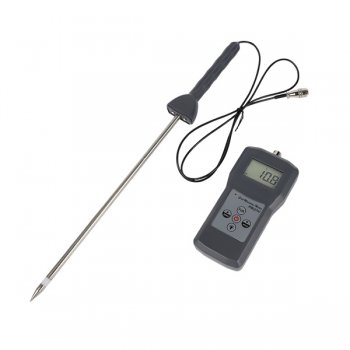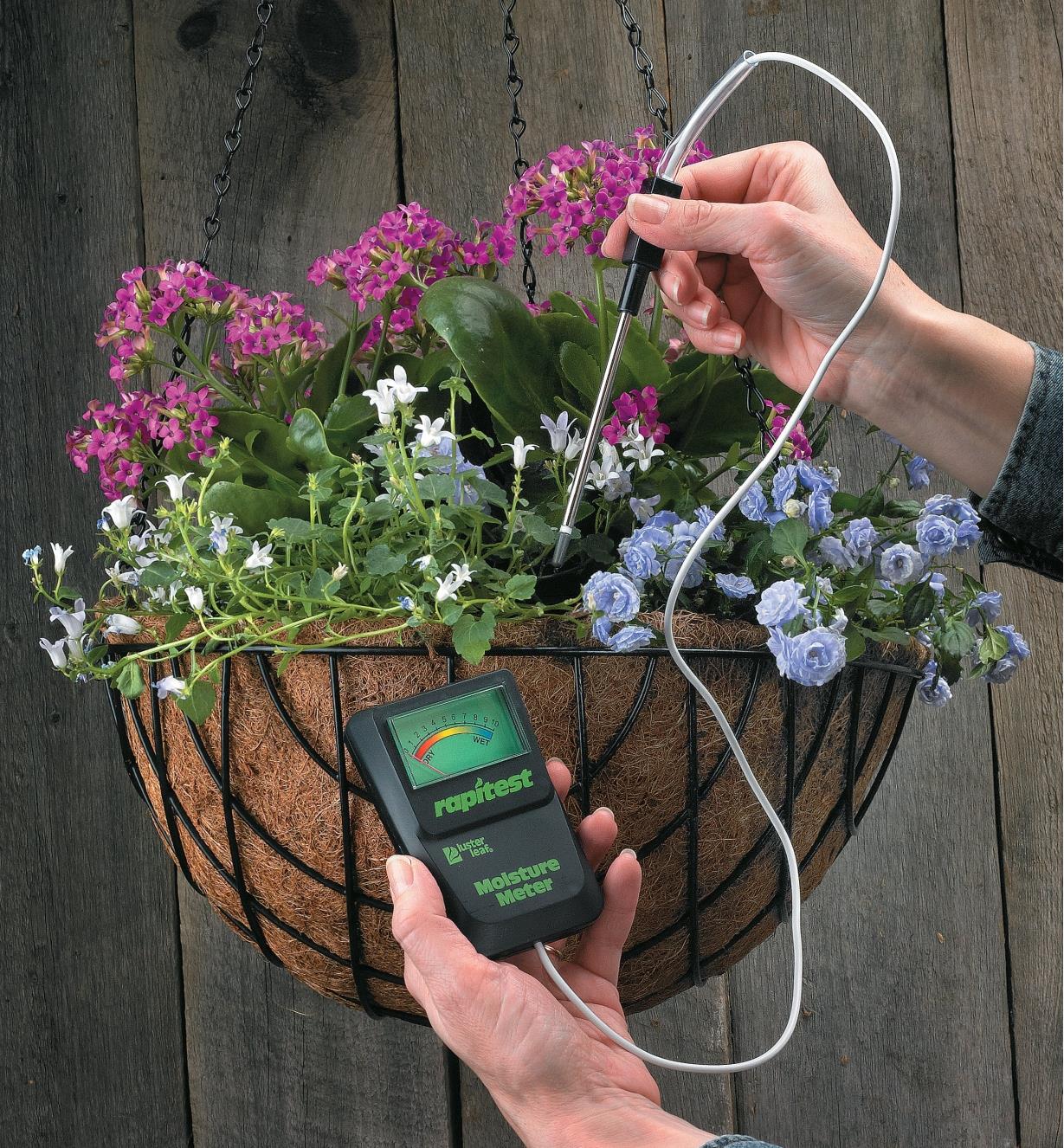Moisture Meter Buying Guide: What to Seek in High-Quality Instruments
Moisture Meter Buying Guide: What to Seek in High-Quality Instruments
Blog Article
The Ultimate Overview to Moisture Meters: A Comprehensive Summary and How They Can Conserve You Money
In the realm of building maintenance, construction, and numerous markets, the significance of accurately gauging dampness levels can not be overemphasized. Wetness meters function as essential tools in detecting and monitoring moisture material in materials, assisting in protecting against pricey damages and ensuring the top quality of products. Recognizing the nuances of different types of moisture meters, their applications, and the possible cost-saving benefits they use can be a game-changer for experts and businesses alike. Finding exactly how these devices can not just simplify procedures however also contribute to monetary cost savings is a trip worth beginning on.
Sorts Of Moisture Meters
One usual kind is the pin-type moisture meter, which gauges the electric resistance in between 2 pins inserted into a material. Pinless dampness meters, on the various other hand, usage electromagnetic sensor plates to check a bigger location without causing damage to the material's surface.
Moreover, there are additionally specialty wetness meters created for details products like hay, grain, or dirt. These meters offer accurate moisture analyses customized to the one-of-a-kind residential or commercial properties of the material being evaluated. Infrared wetness meters determine the thermal residential properties of a product to establish its wetness content non-invasively, making them useful for applications where pin or pinless meters may not appropriate. Recognizing the different types of moisture meters available can aid markets select the most suitable device for their certain moisture measurement needs.

Advantages of Utilizing Moisture Meters

Moreover, utilizing wetness meters can lead to enhanced energy performance. In farming setups, moisture meters play an essential function in optimizing plant returns by allowing farmers to monitor dirt wetness levels and make informed watering decisions.
How to Choose the Right Moisture Meter
Picking the ideal wetness meter entails taking into consideration crucial variables such as material compatibility, dimension array, and calibration accuracy. When selecting a dampness meter, it's vital to make sure that the meter appropriates for the certain material you will certainly be testing. Various materials have differing electrical homes that can influence moisture analyses, so selecting a meter created for your material is vital for accurate outcomes. Additionally, think about the measurement array of the moisture meter. Make sure that the meter can find dampness levels within the array required for your applications. Calibration precision is one more important element to bear in mind (Moisture Meter). Select a wetness meter with trustworthy calibration to make sure regular and precise readings. Some meters might require regular calibration changes, so understanding the calibration process is vital. By carefully examining these variables, you can choose a wetness meter that satisfies your demands and provides precise dampness measurements for your projects.
Appropriate Methods for Moisture Meter Use
To make sure exact wetness analyses and maximize the performance of a moisture meter, using appropriate strategies is essential. When making use of a pin-type moisture meter, put the pins or probes into the product being tested till they make complete call. By complying with these proper strategies, customers can rely on their dampness meter to offer reliable moisture degrees, helping in preventing expensive damages or guaranteeing top quality in various applications.

Cost Financial Savings With Moisture Meter Applications
How can the calculated utilization of moisture meters lead to considerable expense financial savings throughout numerous industries? In the agriculture industry, moisture meters aid in determining the optimal time for harvesting plants, preventing over-drying or excess moisture that can impact the final item's top quality.

Furthermore, in the food processing sector, dampness meters are important for keeping track of product quality and guaranteeing compliance with safety regulations. By properly measuring moisture content in food products, manufacturers can prevent perishing, keep quality, and decrease waste, resulting in considerable cost savings. On the whole, the critical application of wetness meters is an important investment that can bring about significant expense reductions and improved performance across various markets.
Conclusion
In conclusion, dampness meters are important tools for detecting and gauging dampness levels in numerous products. By utilizing the ideal wetness meter and following appropriate techniques, customers can efficiently protect against expensive damages triggered by excess moisture. Buying a high quality dampness meter can result in substantial cost financial savings in the future by recognizing potential concerns at an early stage and making it possible for prompt removal. Ultimately, wetness meters are essential instruments for keeping the integrity and durability of products and frameworks.
Moisture meters offer as indispensable tools in identifying and keeping track of moisture material in products, assisting in preventing pricey problems and making certain the quality of products. Infrared wetness meters determine the thermal properties of a material to identify its moisture content non-invasively, making them beneficial for about his applications where pin or pinless meters might not be appropriate.Wetness meters use very useful benefits in properly analyzing and monitoring moisture levels in varied products and settings. In farming settings, moisture meters play an essential function in enhancing crop returns by enabling farmers to monitor soil moisture degrees and make notified irrigation decisions.In conclusion, dampness meters are beneficial devices for identifying and gauging moisture degrees in numerous materials.
Report this page